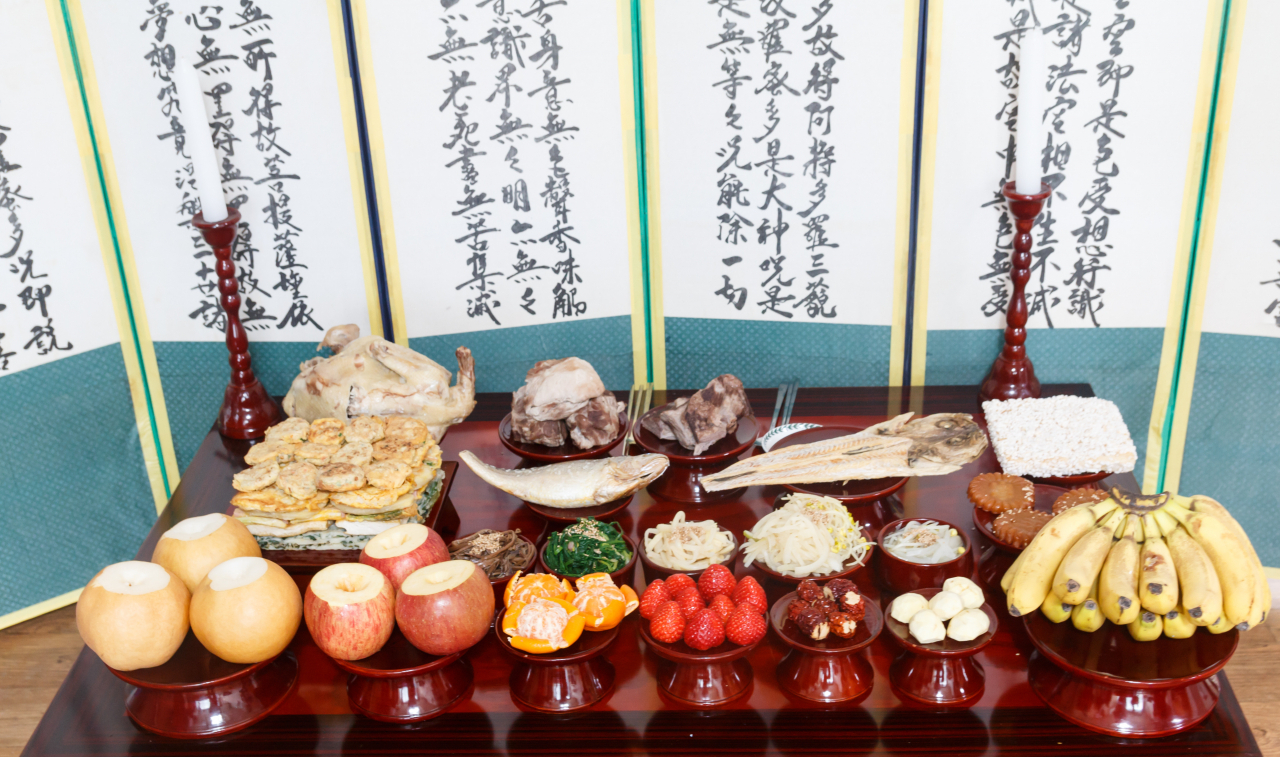[Korean Dilemma] Is time up for feasts for ghosts of Korea's patriarchal past?
Most Koreans expect jesa to be snuffed out sooner or later
By Kim So-hyunPublished : Jan. 17, 2023 - 17:13

The Korean tradition of ancestral rites has been passed down through generations for thousands of years. But it may be only a matter of time before the ritual disappears for good.
The lighting of incense, circling of rice wine and bowing before a table of assorted food items offered to one’s dead ancestors are called “charye” on major holidays like Seollal (New Year’s Day) and Chuseok, and “jesa” on their death anniversaries.
The tradition itself means well. By performing jesa to honor their forefathers, Koreans believed the souls of those who brought them to the world protected them. It’s also an occasion that brings together extended family members to share memories of deceased parents or grandparents.
But the way jesa is prepared manifests some archaic traits in the strictly divided duties and hierarchy between men and women.
As if to symbolize the vestige of traditional gender roles still lodged somewhere in Koreans’ minds, men play the external, ceremonial roles in jesa, while women do most of the actual work.
As the host of the jesa ceremony called “jeju,” the male head of the family begins the ritual by kneeling before the altar to light a stick of incense, which invites the ancestors to the table.
His helper, usually the next man in line like the jeju’s younger brother or son, pours the wine into a cup for the jeju to circle it over the incense three times. Then the jeju kneels and bows twice. A few other men do the same.
Ceremonial details vary across families, but in some households, women, despite having toiled away from dawn to prepare food for the charye table, are not allowed to bow at all.
Ki Seo-kyung in her mid-40s remembers the shock she felt as a child when her paternal grandmother told her to move over so her grandsons could bow during charye.
“I grew up with my maternal grandparents who treated sons and daughters equally. … It was the first time I was told to step aside because I was a girl,” Ki said.
Many women who grew up without facing palpable gender discrimination, at least at home, say the first Seollal, Chuseok or jesa at their in-laws' was a jarring experience.
It can be their first encounter with strange or unpleasant relatives, the amount of kitchen work the women of her husband's family do while the men rest in the living room, or difficulty understanding why the senior women are not willing to change anything. Even if the in-laws don’t perform ancestral rites because they are protestants, they still gather and feast on Seollal and Chuseok.
Korean women have been making strides in professional spheres over the past decades, but women still feel pressured, often by themselves, to keep excelling at their domestic jobs as mothers, wives and daughters-in-law at the same time.
It is partly because they grew up being influenced by their parents’ generation who had more clearly divided gender roles, in which the women took care of the kids as well as her and her husband’s families so that the men could focus on their careers.
The asymmetric strain on women has its roots in agrarian and Confucian Korea of the past where a son-in-law was treated like “a guest forever” -- as the old Korean saying goes -- while the role of a daughter-in-law was to carry on the family line or work like a servant, as some older women bitterly recall.
Young couples nowadays often share domestic responsibilities, but on Seollal and Chuseok, they’re shoved into a time machine headed back to the 1960s.
At these ironically festive occasions of large family gatherings, the new brides feel obliged to follow the unspoken but visible rules of the clans they married into -- the wider the gap with her family by birth in terms of gender equality, the greater the displeasure.
“Even if they say ‘you don’t have to do anything,’ you can’t just sit idly when your husband’s aunt in her 60s is washing tons of dishes,” said Cha Ah-young in her 30s.
As for the numerous septuagenarian women who have stuck by the tradition of jesa for decades, some of them actually believe in spirits, or that honoring of the ancestors is the reason her family are doing well.
“My mother-in-law told me, as if she’s doing me a great favor, that when it’s my turn to host jesa, we should do it without inviting the aunts and uncles,” said Oh Young-mi in her 40s.
“It’s like she wants me to promise to give her jesa when she passes away. From her point of view, it’s been really scaled down from decades ago when there was a jesa almost every month because they did it for everyone up to great great grandfathers.”
Oh and most of her peers say they don’t want their children to perform jesa for them.
In a poll of 847 adults conducted by job search website Incruit last year, 94.3 percent said the charye table menu should be simplified, a view that Sungkyunkwan, an authority on jesa, has also shared.
A proposal for the eldest women of households that can’t let go of "proper" jesa: Please be fair in distributing the work, and ask your sons and other able-bodied men to help.
---
The Korean dilemma, a biweeky column by Korea Herald reporter Kim So-hyun, delves into ironies and contradictions of Korean life and the Korean psyche behind them. -- Ed.

















![[KH Explains] Hyundai's full hybrid edge to pay off amid slow transition to pure EVs](http://res.heraldm.com/phpwas/restmb_idxmake.php?idx=652&simg=/content/image/2024/04/18/20240418050645_0.jpg&u=20240418181020)

![[Today’s K-pop] Zico drops snippet of collaboration with Jennie](http://res.heraldm.com/phpwas/restmb_idxmake.php?idx=642&simg=/content/image/2024/04/18/20240418050702_0.jpg&u=)